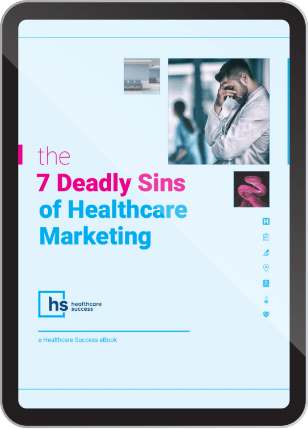Pay-Per-Click and Other Online Healthcare Advertising Terms You Need to Know
 Internet advertising terms can be a bewildering forest of initials, tech-talk and shorthand. For some healthcare providers it’s a strange vocabulary that’s essential to successful online advertising that brings new patients to your doorstep. Fortunately, it's easy to master.
Internet advertising terms can be a bewildering forest of initials, tech-talk and shorthand. For some healthcare providers it’s a strange vocabulary that’s essential to successful online advertising that brings new patients to your doorstep. Fortunately, it's easy to master.
Why Internet advertising? Patients and prospective patients—the target audience—are online. The search for health and healthcare information is one of the most popular online activities. Most estimates agree that 80 percent of Internet users look for health information online, so it’s smart business to do your fishing where the fish are.
- Pay-per-Click (PPC): Among the various models used in search engine marketing campaigns, PPC has significant advantages. Also known as cost per click, the advertiser can control the pre-set monthly budget, paying only when a visitor who is searching for your product or service and chooses to click through to your website. What’s more, the online activity is carefully tracked and reported to allow for increased precision and follow-up. The use of Keywords is at the heart of search advertising.
- Keywords: These are carefully selected individual words or phrases that someone is most likely to use when searching online for your product or service. To be effective in matching search interests to what you provide, the search term must be highly relevant and commonly used. Most online healthcare campaigns will use many precision-selected keywords. Poorly chosen keywords will not connect with user searches.
Google is the world’s most-used search engine. User searches, of course, are free, and much of their revenue comes from online advertising. Here’s how Google explains some of the common terms in their vocabulary:
- AdWords: Google’s name for it’s online advertising program. AdWords accounts are managed online, and the advertiser or agency sets and controls their own budget.
- Clickthrough Rate (CTR): A ratio showing how often people who see your ad end up clicking it. (The number of clicks divided by the number of impressions.) This measure helps gauge how well ads and keywords are working and a good indicator of relevance.
- Impressions: This is how often your ad is displayed on a search results page. The operative word is “displayed,” meaning that it appeared, and that’s not the same as being seen and acted upon. Some advertising models are based on a cost-per-impression, which is generally not as useful for healthcare advertising purposes where PPC is usually preferred.
- Landing Page: The destination webpage that visitors are linked to when they click on an advertisement. It can be the home page of your website, or it can be a webpage that is created specifically to support or elaborate on the ad message. For example, a urology practice offers a wide range of services. But they may have separate online advertising efforts—and a unique landing page devoted to—each of the distinctly different services such as “overactive bladder,” and “vasectomy.”
- Optimization: The nature of online advertising provides a great deal of flexibility, and optimization refers to the ability to make changes to improve performance quickly. In this respect, Internet advertising is more easily revised—changing keywords, ad messages, placement, etc.—than traditional medical advertising forms.
- Relevance: This is how closely the elements of an advertising campaign match to what the person seems to be searching for online. (See also Keywords) A highly relevant ad, keyword list, and landing page can achieve a better match, higher position and ultimately more inbound new business.
- Split Testing: This is an essential tool in PPC advertising where the effectiveness of one ad is tested against another ad. Split testing can reveal the words or phrases that are most likely to bring the better results.








